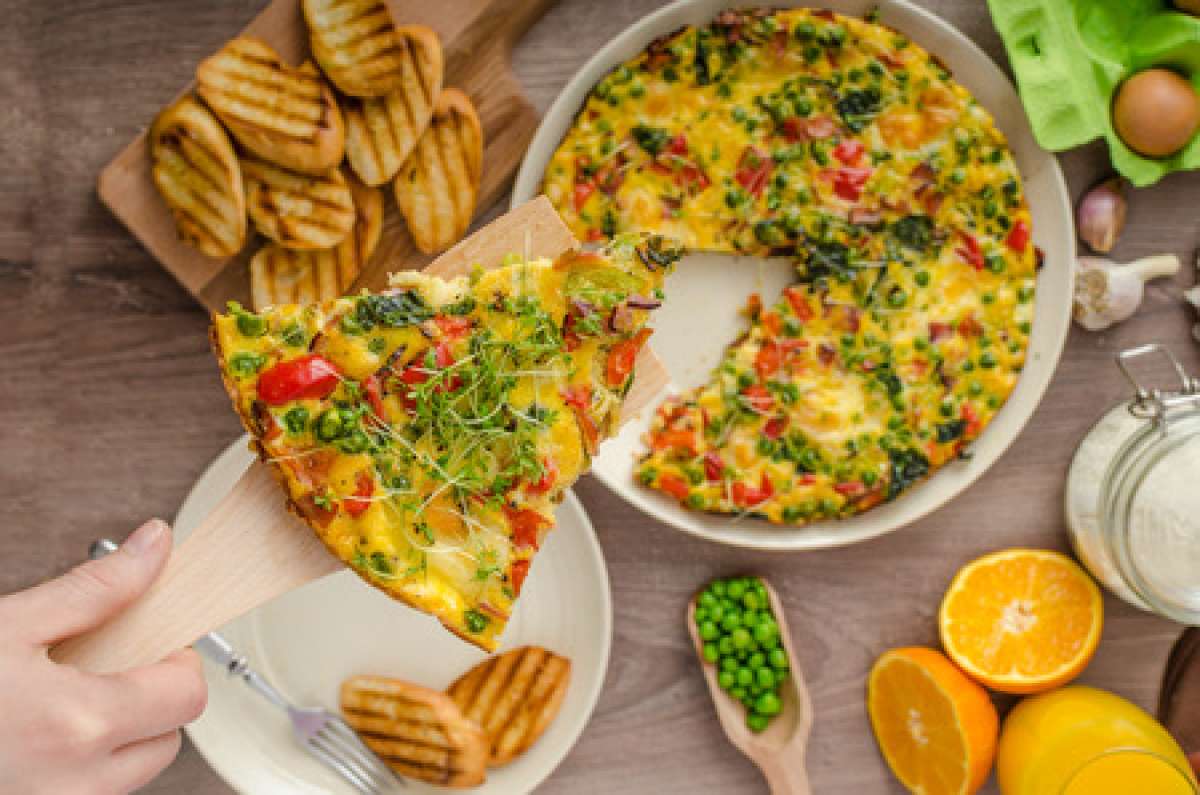Tips for Vegetarian Pregnant Women

Tips for Vegetarian Pregnant Women
Vegetarian diets that are not based on junk food have plenty of the nutrients needed by pregnant women. The key is to eat a wide variety of foods and avoid sweet and fatty foods (nothing new there!).
A major concern for vegetarians is that their diet might lack protein (found abundantly in meat), iron (also found in meat), and vitamin B12 (found only in animal products and vitamin B12 fortified foods). If you are a vegetarian, you have nothing to worry about if you select other foods that contain these nutrients.
Protein: Good sources of protein for vegetarians include legumes (dried peas and beans), grains, soy products (tofu and soy milk, for example), nuts and nut butters, seeds, lentils, tempeh, and dairy products (cottage cheese, milk, yogurt, cheese, and eggs). Common foods such as greens, potatoes, pasta, and corn also add to the protein count.
Baby Talk
Vegetarians are divided into two types: Vegan vegetarians do not eat any animal or dairy products, including eggs, meat, fish, and poultry. Lacto-ovo vegetarians do not eat meat, fish, or poultry, but they do eat dairy products, such as milk, cheese, and eggs.
Daddy Alert!
If your partner is a vegetarian and you are not, you might be worried that her diet is going to be bad for the baby. You can stop worrying. A vegetarian diet that is filled with foods from the first two levels of the Food Guide Pyramid offers plenty of good nutrition. If you see that your partner is taking in most of her calories from the top level in donuts, cookies, chips, and sodas, then you should speak up and encourage her to get on the healthful food track.
Some years ago, a popular theory said that it was necessary to eat certain combinations of plant proteins to get the full benefit of protein. This is no longer considered necessary; with a varied diet and adequate calorie intake, you don't have to worry about combining your proteins.
Iron: Good sources of iron are whole grains, dried beans, dark green leafy vegetables, blackstrap molasses, tofu, spinach, beet greens, bulgur, prune juice, and dried fruits.
There are a few little tricks you can use to get the most iron out of these iron-rich foods.
- Be sure to include foods rich in vitamin C (such as orange juice) in your diet every day. This vitamin will help your body absorb iron.
- Cooking in a cast-iron skillet can help you get more of this mineral.
- Cut back on caffeinated drinks such as coffee, tea, and colas; they interfere with the body's ability to absorb iron.
Following these simple tips will boost your iron levels.
Calcium and vitamin B12: These nutrients are in plentiful supply in the lacto-ovo vegetarian diet (the one that allows dairy products). If you are a vegan vegetarian, however, these two nutrients might be lacking in your diet. To boost your intake of calcium, look for calcium-fortified products (products to which calcium has been added in the processing) such as orange juice and soy and rice milks. Also increase your intake of calcium-rich kale, collard greens, mustard greens, turnip greens, broccoli, and tofu enriched with calcium.
You might also need a calcium supplement with at least 150 to 200 milligrams of calcium. Look on the label for calcium carbonate; this is the type most easily absorbed by the body. If you're not sure if your supplement contains carbonate, try this test: Put the supplement in a glass of vinegar. If it takes more than 10 minutes to dissolve, use another brand—this one is not calcium carbonate.
Vegan vegetarians have a particularly tough time getting enough vitamin B12 because it is found primarily in animal-derived foods. Still, it's vital that you find a way to keep up your supply because B12 is an essential nutrient for the developing fetus. Vitamin B12 is required by all cells that synthesize DNA, including those of the nervous system.
Hey Mom!
Want to boost your supply of calcium? Get out in the sun (with a sunscreen of course)! The vitamin D supplied by exposure to the sun allows more calcium to be absorbed by the body.
Food sources of B12 for vegans include some brands of nutritional yeast and soy milk, and B12-fortified cereals, such as Grape Nuts. (Tempeh and sea vegetables might contain some B12, but their content varies and might be unreliable.) Your best bet is to get vitamin B12 through nonanimal-derived supplements. Be sure to tell your doctor that you are a vegan so she'll know to choose a prenatal vitamin with a healthy supply of B12.
You've always known that a nutritious diet builds strong bones, healthy organs and nerves, and everything else you're made of. Now it's time to think about how important it is to eat the right foods if you are creating these body systems. Your baby is counting on you to eat good foods to give her the advantage of exceptional physical and mental health right from the start.